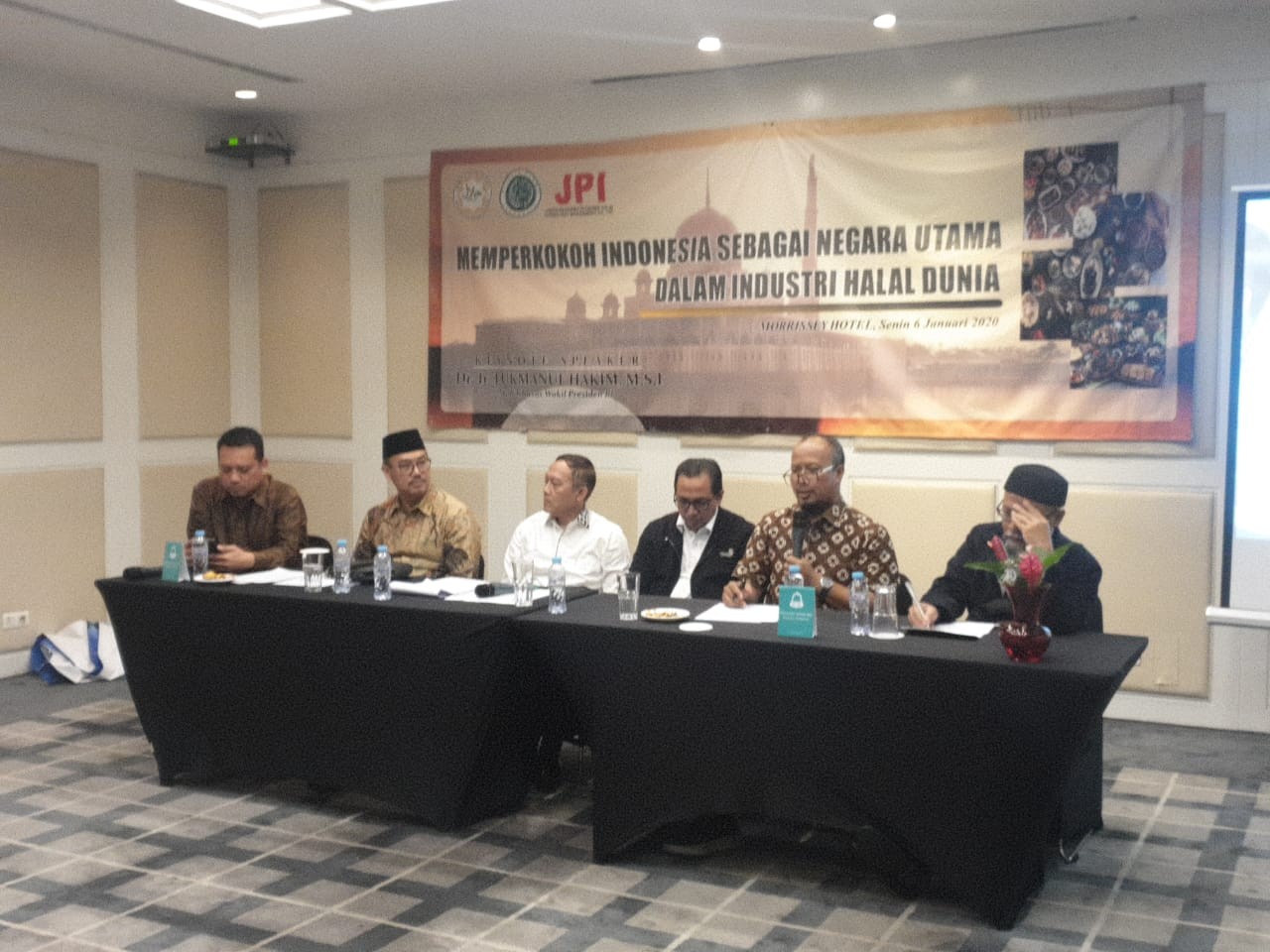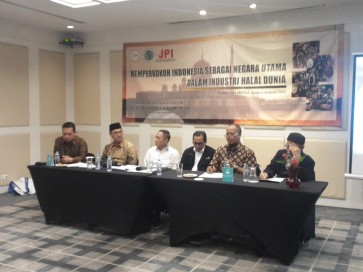Popular Reads
Top Results
Can't find what you're looking for?
View all search resultsPopular Reads
Top Results
Can't find what you're looking for?
View all search resultsF&B companies struggle to comply with halal certification requirements
Enforced in October last year under the Halal Products Guarantee Law, the law mandated that all non-haram products and services must obtain halal certification.
Change text size
Gift Premium Articles
to Anyone
 A discussion on halal certification is attended by (from left) Indonesian Food and Beverages Producers Association (GAPMMI) committee head for public policy and inter-institutional relations Doni Wibisono; Vice President expert staff member Lukmanul Hakim; Indonesia Halal Watch executive director Ikhsan Abdullah; Biofarma head of corporate communications Iwan Setiawan; Indonesian Consumers Foundation (YLKI) head Tulus Abadi and Trisakti University transportation expert Raden Didiet Rachmat Hidayat on Jan. 6. (JP/Moch. Fiqih Prawira)
A discussion on halal certification is attended by (from left) Indonesian Food and Beverages Producers Association (GAPMMI) committee head for public policy and inter-institutional relations Doni Wibisono; Vice President expert staff member Lukmanul Hakim; Indonesia Halal Watch executive director Ikhsan Abdullah; Biofarma head of corporate communications Iwan Setiawan; Indonesian Consumers Foundation (YLKI) head Tulus Abadi and Trisakti University transportation expert Raden Didiet Rachmat Hidayat on Jan. 6. (JP/Moch. Fiqih Prawira)
I
ndustry players, especially food and beverage producers, are struggling to comply with the mandatory halal certification regulation, specifically when it comes to fulfilling requirements related to product reaudits for adding new ingredients, halal storage, distribution and means of transportation.
Enforced in October last year under the Halal Products Guarantee Law, the law mandated that all non-haram products and services must obtain halal certification.
The law also shifts the authority to handle the issuance of halal certification from the Indonesian Ulema Council Assessment Institute for Foods, Drugs and Cosmetics (LPPOM MUI) to the Halal Certification Agency (BPJPH) under the Religious Affairs Ministry, though the former is still assigned to evaluate, test and approve the products.
The Indonesian Food and Beverages Producers Association’s (GAPMMI) committee head for public policy and inter-institutional relations, Doni Wibisono, said it was difficult for food and beverage producers to meet the certification requirements as it required a reaudit every time new ingredients were added.
“Even if we change the flavor of one product, the product will have to be reaudited, whereas before, we just had to verify whether the new ingredients were safe,” Doni told reporters on Monday.
A representative from Taiwan Shih-Lin Street Snacks, Ian Saputra Widjaja, also said the product reaudits could be troublesome for food and beverage producers.
Dodi added that the halal certification requirements for goods transportation could also pose a problem as many transporters were still unaware that the vehicles that they used to transport retail goods, such as trucks, had to be halal certified as well.

















